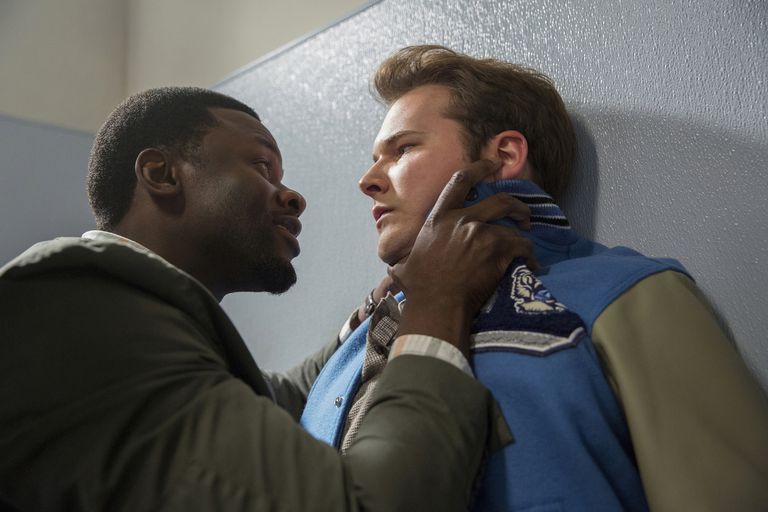Spoiler alerts: “13 Reasons Why” released their second season on May 18, and this season delivered what I predicted it would.
About a month before the season premiered, I had made up my mind to keep watching this series because of how I felt after watching the first season almost a year ago. I felt a dread for days. The show weighed heavy on my heart.
I’ve personally had experiences with mental health issues like depression and anxiety, and, honestly, it was really hard to watch the series. Thinking about my own experiences made me connect with the show closer than I thought it would. But I was glad I watched it because it helped me to realize that awareness was coming to such issues and that people were talking actually about suicide, sexual misconduct and other issues such as bullying.
And that was just the first season.
I recently watched the second season, and I knew the series was going to be about repercussions and how the students’ actions most definitely have consequences.
Changes in Character
In this season, each character has changed, whether big or small, it’s truly evident.
In the first season, the characters make their debuts. Clay Jensen is the main character who is living with the fact that his good friend, Hannah Baker, has killed herself. Hannah’s death by suicide is a surprise to many, until Clay receives a set of tapes Hannah had created. Clay encounters many characters, such as Bryce Walker, an athlete who is also a rapist; Jessica Davis, who’s a popular cheerleader who is raped by Bryce; and Alex Standall, who experiences a lot of guilt following Hannah’s death, leading to his own attempted suicide. There are many more characters who are affected by Hannah’s death, but it affects the students in different ways, as seen in season two.
Clay begins this season with Skye, a character who struggles with cutting and bipolar disorder, as his girlfriend, and he seems as if he has moved on and he cares for Skye a lot. But that was just briefly. He starts to see Hannah, which I assume is Clay’s mind creating this version of Hannah. Throughout the season, he deals with Hannah’s ghost influencing many of his choices. He wonders if he really did contribute to her death and if he can do anything about it to get justice for her.
In this season, Jessica is trying to conceal the assault she survived and she wants to let go. Everyone else around her wants her to face her issues and report the rape to the authorities. Her parents want her attacker in jail, her friends want her to come out and talk about the rape so she can get the justice she and Hannah both deserve, since Hannah was also raped by Bryce.
[Related: Get Help Here — Mental Health Resources for Teens]
Yet, Jessica seems to be only beginning to deal with the rape throughout the season. She’s starting to share her vulnerability, and a lot a people are pushing her to share her story, yet she realizes that this is her story and she can tell it when she wants to. In her process, she finds a new friend who’s been through the same thing. Jessica’s role this season really helps to explain how trauma takes time to recover from. It’s not easy to return to the way things used to be.
Another big character this season is Alex. In the last season, Alex considered taking his own life and attempted to by shooting himself. Throughout this season, he deals with the fact that he believes he’s broken and that he’ll never be able to repair. He also spends the season trying to regain his memory but just can’t until the end. Alex is a character of strength. He goes through a lot mentally and physically, but he’s an important character to look at and realize that his actions did have consequences.

Zack realizes the company he has is corrupt, even though he still hangs with Bryce and the jocks. Justin returns from homelessness and a heroin addiction. Courtney finally reveals that she’s a lesbian, and even the counselor, Mr. Porter, realizes he needs to try harder for the kids at Liberty High because kids need help. After Hannah’s death, Mr. Porter has this guilt inside of himself, after Hannah had asked him for help in the first season and he sent her away, the same day she killed herself.
Hannah’s parents are going through the trial of a lifetime, both physically and mentally trying to get justice for Hannah. At first, her father and her mother are separated, in the middle of a divorce, but her father eventually comes to accept that he should be fighting for Hannah just as much as her mother is.
Some characters haven’t changed. Marcus keeps lying to cover what he’s done and throws Bryce under the bus several times to protect his perfect Harvard-like reputation. And Bryce — Bryce is so deep into thinking the things he’s done aren’t going to come up, but they do, and he is finally confronted as the rapist he really is.
Finally, there are new characters such as Cyrus and Chloe, who are just being introduced into this new world of Hannah’s effects.
A Difficult Trial
All of these characters are related under this one thing that takes control of the whole season: the trial, Liberty High v. The Bakers.
The trial is rough and long for everyone, including the students, and especially Hannah’s parents. Everyone is on edge, but at certain times, there are periods of honesty from the students during their testimonies. There is a genuine response from characters such as Zack, who explains how much he cared for Hannah, even though he keeps her a secret.
And that’s one of the biggest themes of the season: honesty and the concept of keeping secrets and how they truly can destroy lives.
Secrets & Lies
None of the teens are honest at all times. They keep secrets from themselves, their parents, and their peers as well.
Many of the parents ask why their child isn’t or wasn’t honest with them. And secrets are still kept. The Polaroids Clay receives reveals even more to a hidden story: the real corruption of a high school baseball team.
The teens don’t realize the lies and secrets they keep are hurting themselves and others more than keeping themselves safe from judgement and fear.
In the end, they all get away with it — the lies, the fear, the anger, the violence. Yet, by the end of the series, the students learn to move on from these experiences because Hannah’s death has taught them lessons they could not get from anywhere else.
Resembling Reality
In this season, I’ve seen things that actually resemble reality. Kids don’t tell their parents things. We all hide secrets, because we can. We don’t share certain details because we know the decisions we make are sometimes wrong. And when people do us wrong, we want to explode, whether that be mentally or physically.
In the season’s last episode, everyone seems to move on from the trial and begin a new chapter — until Tyler is brutally assaulted in the bathroom. Then he decides he wants to shoot up the school. I predicted a school shooting way earlier in the show, the last episode of the first season, but I assumed it wouldn’t happen because Tyler’s character goes through a lot but not enough to be recognized.
The show always is surprising, and it really teaches you something about how lies can get spun out of control and how the basic teen is not what he or she seems. Teens have layers; we go through experiences that are tough. Yet, even though teens see events that are traumatic, like school shootings, and the world can pretend to bring awareness for a month or two, it all eventually goes away. Just like it will soon for the characters of “13 Reasons Why.” Like Clay said, “Adults will cry for a week,” but in the end, everyone moves on.
Of course, the show contains very graphic and explicit things, such as the depictions of rape and suicide, but that’s the point. The point is to reveal the truth — about suicide, mental health, sexual abuse and rape, and about how the effects of those events can be negative if it’s not acknowledged or positive, if there’s reinforcement from others with love and support. The repercussions of what teens do to ourselves and each other affects the community in 13RW and resembles the reality for many teens in real life.
“13 Reasons Why” spreads truth — and the real truth is that everyone’s actions have consequences. No matter what anyone says about the show, it’s a trailblazer for more awareness for mental health and other serious issues such as suicide and sexual assault, and gives alertness in the future.
 Jasmine, 16, attends DeKalb Early College Academy, and is a fan of “13 Reasons Why,” no matter how controversial it gets.
Jasmine, 16, attends DeKalb Early College Academy, and is a fan of “13 Reasons Why,” no matter how controversial it gets.
She also supports teens getting mental health help! So Does “13 Reasons,” apparently; check out their Resources page here.
Need help right now?
Teen Line is a nonprofit that offers support by teens, for teens (ages 13 to 19) by phone or text.
- CALL 310-855-4673
- TEXT TEEN to 839863
They also have a “Teen Yellow Pages,” searchable resource guide.




